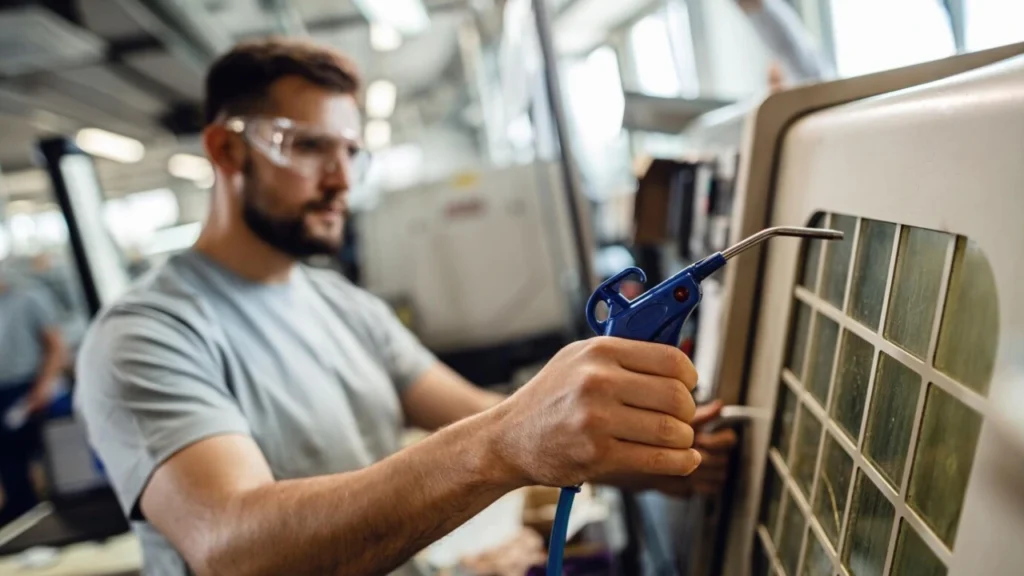
Introduction
Air conditioners are essential in hot climates. They provide comfort and improve air quality. But they don’t last forever. So, How Long Do AC Units Last. Let’s answer that clearly and simply.
Answer
Most AC units last between 10 to 15 years.
Some can run longer with proper maintenance.
Others may fail sooner due to poor care.
Understanding the factors helps you plan ahead.
Average Lifespan of AC Units
Central AC units usually last 12 to 15 years.
Window units tend to last 8 to 10 years.
Portable ACs last about 5 to 8 years.
Ductless mini-split systems last up to 20 years.
Lifespan depends on how often the system runs.
Climate, usage, and care all play big roles.
Factors That Affect Lifespan
Installation quality matters from day one.
Bad installs can shorten unit life fast.
Climate affects wear on components.
Hotter places cause more frequent operation.
Maintenance is the key to longevity.
Neglect leads to early failure.
Size of the unit also matters.
An undersized unit works harder and wears faster.
Signs Your AC Unit Is Failing
Warm air blowing from vents is a warning.
Strange noises signal mechanical issues.
Short cycling shows system strain.
Frequent repairs mean aging components.
Rising energy bills show reduced efficiency.
Inconsistent temperatures across rooms are a clue.
If the unit is 15+ years old, it’s near end-of-life.
How to Extend the Life of an AC Unit
Change filters every 1 to 3 months.
Keep outdoor unit clean and clear.
Use a programmable thermostat to ease usage.
Seal air leaks in your home.
Keep vents open and unblocked.
Have yearly inspections by a technician.
Fix small problems before they grow.
Maintenance Tips for Longer Life

Clean or replace filters regularly.
Check and clean coils yearly.
Clear debris around outdoor unit.
Inspect drain lines for blockages.
Tighten electrical connections when needed.
Lubricate moving parts when required.
Monitor refrigerant levels and top up if needed.
Schedule professional tune-ups once a year.
When to Replace Your AC Unit
If repairs cost more than half a new unit, replace it.
Older units over 15 years should be evaluated.
Poor performance after maintenance is a red flag.
Frequent breakdowns are not worth fixing long-term.
Outdated models lack energy efficiency.
Newer systems offer better performance and savings.
Cost of Replacing an AC Unit
Costs depend on unit type and size.
Central AC systems cost $4,000 to $8,000 on average.
Mini-splits range from $2,000 to $6,000.
Window units cost under $500 usually.
Labor and ductwork add to total costs.
Energy-efficient models cost more upfront.
But they save money over time.
Energy Efficiency and Aging Units
Older units lose efficiency with time.
They use more energy to do less work.
This raises your utility bills monthly.
Newer models meet higher efficiency standards.
Look for units with a high SEER rating.
Upgrading can cut energy costs in half.
Smart thermostats also boost efficiency.
FAQs
Q1: What’s the best month to replace an AC unit?
Spring or fall is ideal.
Technicians are less busy.
You avoid peak season pricing.
Q2: Can an AC unit last 20 years?
Yes, but only with excellent care.
Most need replacement before then.
Q3: Is it worth repairing a 15-year-old AC?
Usually not.
Replacement is more cost-effective long term.
Q4: How do I know what size AC I need?
Get a professional assessment.
They’ll calculate based on home size and layout.
Q5: How often should AC filters be replaced?
Every 1 to 3 months.
More often if you have pets or allergies.
Q6: What shortens an AC unit’s life the most?
Lack of maintenance is the biggest cause.
Running with dirty filters or low refrigerant also hurts it.
Q7: Does running the AC all day wear it out?
Yes, it increases wear and tear.
Use timers or thermostats to reduce run time.
Conclusion
AC units are long-term investments.
With care, they can serve you well for over a decade.
But nothing lasts forever.
Knowing the signs and taking action matters.
Keep up with maintenance and watch for wear.
Plan ahead so you’re not caught in the heat.
A new unit may cost more now.
But it will save money and stress later.

